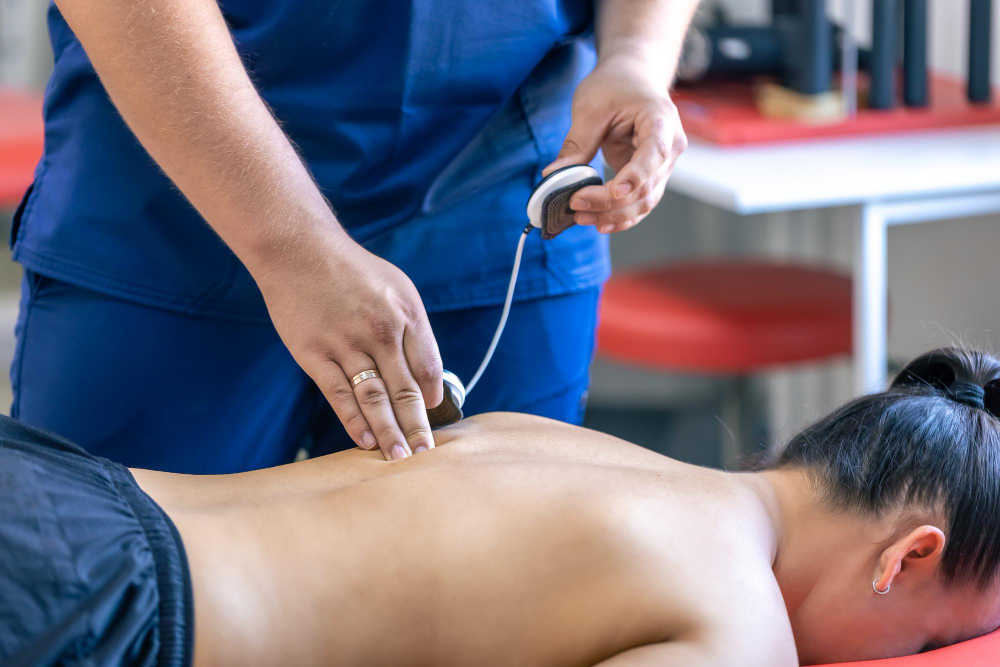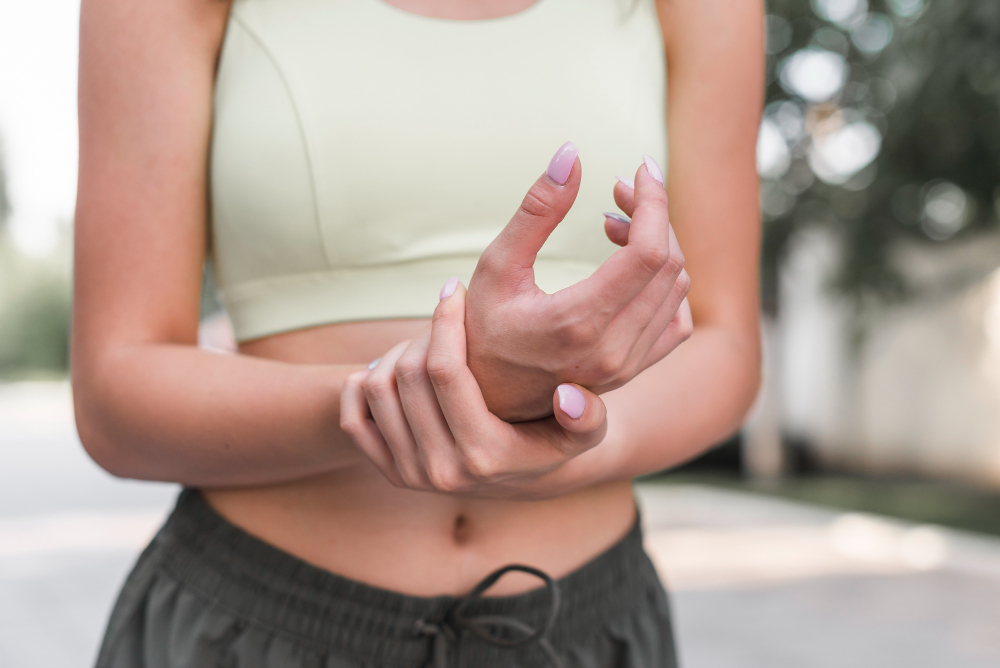Have you ever suffered a painful wrist after a day sitting at the computer, or found your elbow aching after a game of tennis or round of golf? If so, you may be suffering from one of many forms of Repetitive Strain Injuries and an osteopathy treatment may help. RSI can affect almost any part of your upper body, including wrists, hands, elbows, shoulders, and arms.
What is RSI?
Repetitive Strain Injury, or RSI, is a term used to describe a range of problems that affect tendons, muscles, nerves and joints. Repeated strain damages these tissues, causing pain and loss of strength.
RSI is not new! In 1700, an Italian physician, Bernardino Ramazzini, wrote a paper titled “De Morbis Artificum Diatriba” or Diseases of Workers. Here is just one of his observations;
“The maladies that afflict the clerks . . . arise from three causes: First, constant sitting, secondly the incessant movement of the hand and always in the same direction, thirdly the strain on the mind … Incessant driving of the pen over paper causes intense fatigue of the hand and the whole arm because of the continuous and almost tonic strain on the muscles and tendons, which in course of time results in failure of power in the right hand.”
Symptoms of RSI
RSI mostly affects jointed areas in the upper body including your arms, shoulders, wrists, and hands. The symptoms can range from mild to severe and usually develop slowly over time. Symptoms typically include:
- Pain or aching
- Tenderness or stiffness
- Throbbing sensation
- Tingling sensations or slight numbness
- Weakness in the joints
- More rarely, sensitivity to hot or cold may occur.
Initially, these symptoms may only be present during the causal action, i.e. when you are carrying out the repetitive motion. However, without effective treatment, the symptoms, including pain, may become constant.
Causes of RSI
The common cause of RSI issues is the repetitive overuse of a set of muscles. The reason for this can be varied, but common examples include;
- Repetitive sports actions.
- Continuous use of vibrating equipment.
- Working for extended periods of time in cold temperatures.
- Poor posture.
- Working in a non-ergonomically designed environment.
- Activities that exert a lot of force, for example lifting heavy objects.
- Holding the same posture for prolonged periods.
Previous injuries can make an individual more likely to suffer from RSI in the future.

Examples of RSI
Whilst there are many types of repetitive strain injuries, here are three common examples;
Gamer’s thumb (or De Quervain’s tenosynovitis) is caused when the tendons around the base of the thumb become swollen, resulting in a pain on the thumb side or the wrist, made worse when trying to grip something.
Tennis (or golfer’s) elbow (or lateral epicondylitis) affects the tendons attached to the outside (or inside) of the elbow. Not always caused by sport, the overuse of the elbow can cause a weakening of the tendon’s attachment, resulting in pain.
Carpal tunnel syndrome occurs when the median nerve, which runs from the hand up through the forearm, becomes compressed, resulting in numbness or pain in the hand. Overuse of a computer mouse is a common cause, with repeated hand and wrist movements irritating the tendons.
How is RSI diagnosed?
A medical professional, such as a GP, Occupational Health practitioner, or osteopath, should be able to diagnose an RSI problem via a physical examination and understanding the type of repetitious tasks undertaken. By understanding what a person does regularly, what causes the discomfort, and when it occurs, they will be able to recommend a course of action to reduce further injury and to start the process of recovery. A qualified osteopath or physiotherapist will also be able to assess if there have been any wider injuries or issues caused by compensating for the original RSI restrictions. Learn more about our osteopathy treatments as well as physiotherapy treatments.
Treatment for RSI
The first step in treating a diagnosed RSI is to minimise or modify the motion causing the injury. It may be necessary to stop the activity all together for a period of time, to allow muscles and associated tissues to recover.
Pain relief may come from recommended doses of paracetamol or ibuprofen, always following the advice of your GP.
A qualified osteopath or physiotherapist will be able to give advice on posture and how to gently strengthen and relax the affected and supporting muscles, increasing movement and function of the affected areas.
Some people find that other types of therapy, such as massage, and yoga help relieve symptoms.
Whilst surgery can sometimes be required, it is very rare and only as a last resort to correct a major problem with tendons or nerves.

How to prevent RSI
Repetitive strain injuries can be minimised by reducing the intensity of activity and taking regular breaks. Simply standing up every twenty minutes or taking a short walk will help reduce the risk of injury.
Desk workers should ensure good posture and an ergonomic environment. Use a chair that gives good support for your lower back and keep your feet flat on the floor or on a footrest. Your elbows should be in line with your keyboard to avoid strain. Using an ergonomic or vertical mouse can often help with RSIs such as Carpal Tunnel Syndrome.
How Carl Todd Clinics can help
Our professional osteopaths are experienced in effectively treating a wide range of repetitive strain injuries, whether caused by sporting activity or in the work environment. By swiftly diagnosing the injuries they can help with one-on-one therapies to reduce stiffness and pain, as well as provide a tailored program of activity and exercise to carry out at home or at work.RSI is a very common problem and one that needs to be addressed quickly and effectively. If you think you have a repetitive strain injury, Carl Todd Clinics can assist. Give us a ring to see how we can help reduce the pain and get you back on the path to full recovery. We would love to hear from you.





